Adapting Stephen King's Salem’s Lot: The 2004 Miniseries Is One Of The More Underrated Stephen King Remakes
Featuring a fantastic cast include Rob Lowe, Donald Sutherland, Andre Braugher, and more.
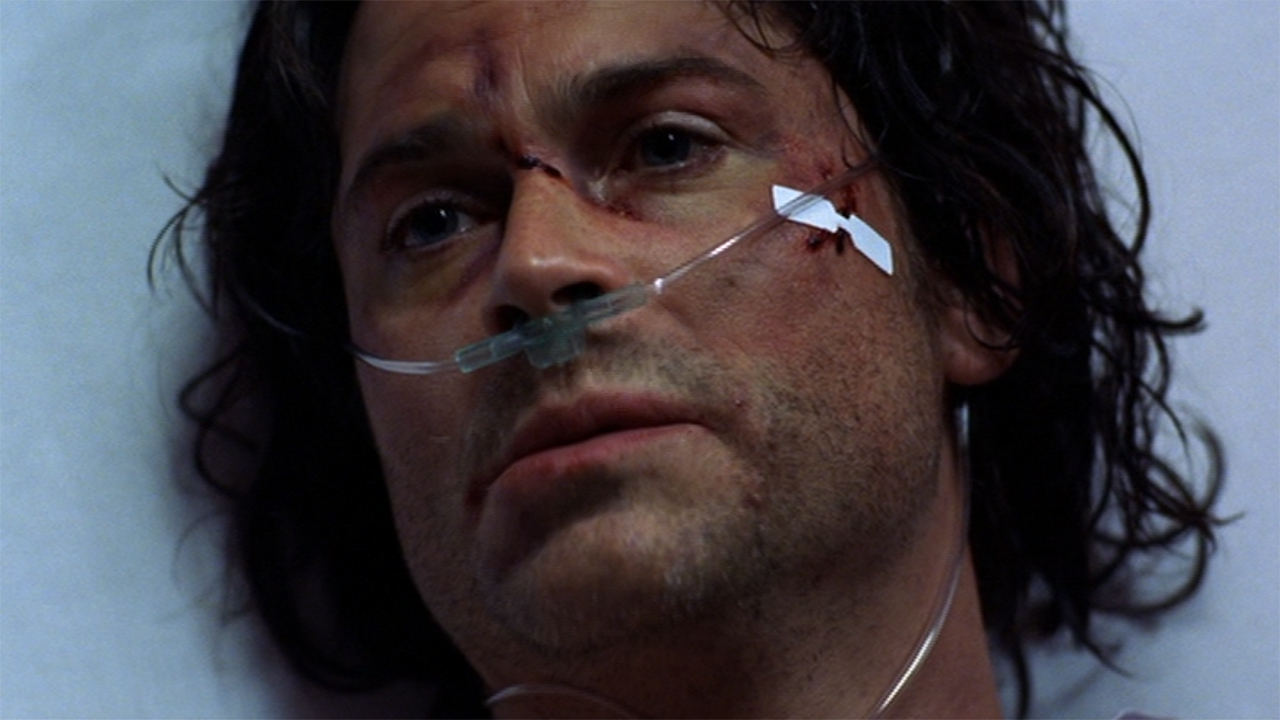
Prior to 2004, every American Stephen King remake had one thing in common: a change in medium. Stories that were originally adapted as big screen movies were either remade as features for the small screen (Trucks and Carrie), turned into a miniseries (The Shining), or re-envisioned as an on-going show (The Dead Zone). On the whole, it’s a good thing, as the variation automatically provided differentiation between the respective cracks at the shared source material.
This trend came to an end with the making of Mikael Salomon’s Salem’s Lot. According to Stephen King Films FAQ by Scott von Doviak, the project began development when Warner Bros. decided to once again try and turn Stephen King’s second novel into a theatrically released film, but just like what happened with Tobe Hooper’s Salem’s Lot from 1979, circumstances evolved and saw the remake move to television. Like its predecessor, it took the form of a two-part miniseries with a total runtime of just a little over three hours.
Of course, while both productions are part of the same medium on paper, there is a key difference between them. While Tobe Hooper’s version was made to air on network television (CBS, to be specific), Mikael Salomon was provided the freedom that came with making Salem’s Lot for basic cable – the adaptation airing on TNT consecutive nights in late June 2004.
With fewer restrictions on content, the first remake of Salem’s Lot is much darker and “edgier” than its predecessor, and it sports a stellar cast of fantastic actors… but does grittier material and a superior cast make for a superior interpretation of the book? This week’s Adapting Stephen King examines that question.
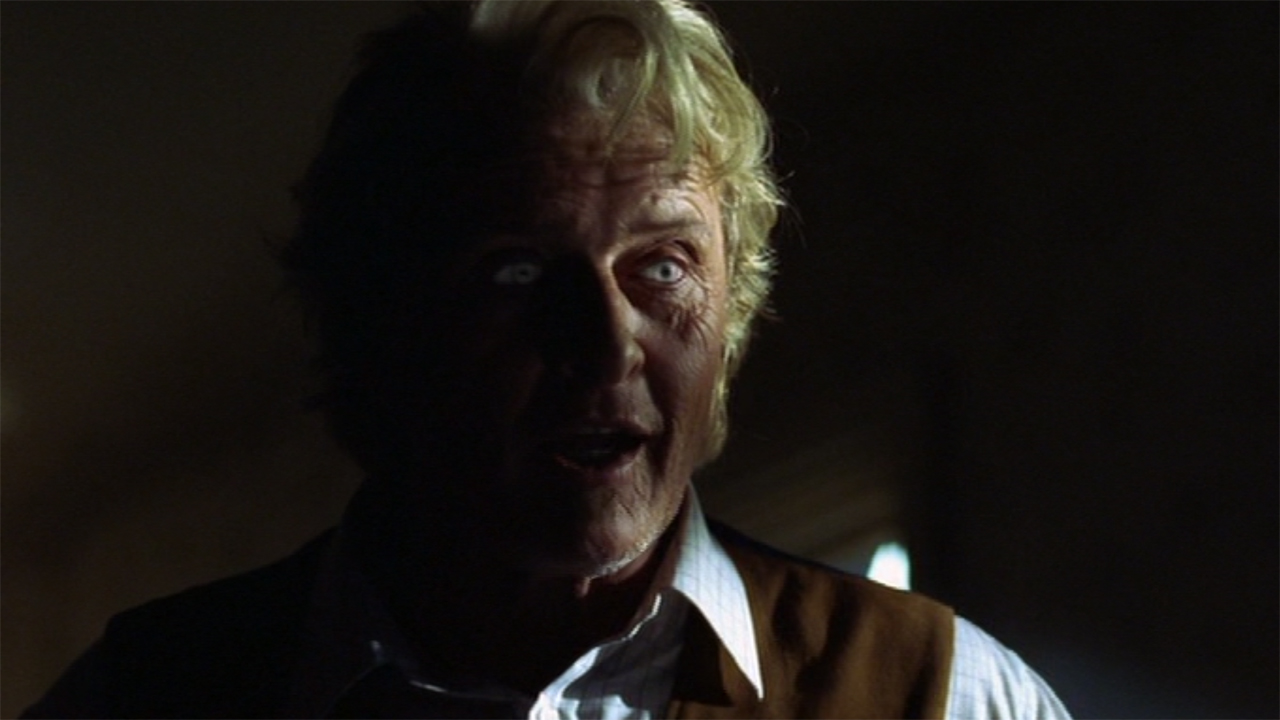
How Mikael Salomon’s Salem’s Lot Differs From Tobe Hooper’s Salem’s Lot
Written by Peter Filardi (who, 17 years later, would co-create the Stephen King series Chapelwaite), 2004’s Salem’s Lot makes considerable changes to the source material that will be discussed in the next section, but some of the most interesting faithful elements of the miniseries are details and events that were either altered or skipped by Tobe Hooper’s adaptation.
The most wide-sweeping of these is the remake’s more significant attempt at capturing the energy of Jerusalem’s Lot as a whole town experiencing a slow infestation. The original keeps a narrow focus on the principal vampire hunters and their respective arcs, but Mikael Salomon’s version makes a specific point to unearth the darkness sleeping under the calm, small town aesthetic – and thus makes time to include horrifying sequences like hateful bus driver Charlie Rhodes (Andy Anderson) being devoured by a pack of blood-sucking children and the dimwitted Dud Rogers (Brendan Cowell) being seduced by Kurt Barlow (Rutger Hauer) at the town dump.
Speaking of Kurt Barlow, the presentation of the king vampire in the 2004 miniseries is a much better representation of what Stephen King put on the page compared to Tobe Hooper’s – who brought the character to life as an homage to F. W. Murnau's Nosferatu. As originally written, Barlow appears to look like a fairly normal human with red eyes and sharp fangs, and that’s how he is played by Rutger Hauer.
Your Daily Blend of Entertainment News
Another character “repaired” following alterations in the 1979 miniseries is Dr. James “Jimmy” Cody (Robert Mammone). As a kind of shortcut, the original adaptation combined characters from the novel – namely Dr. Cody and Susan Norton’s father – to create Dr. Bill Norton, but the remake makes him an independent player who organically becomes one of the heroes trying to stop the takeover of Jerusalem’s Lot while helping Matt Burke (Andre Braugher) recover from his heart attack.
There is a whole extra plot thread added to his story (more on that in a bit), but Dr. Cody also has a fate that is much closer to Stephen King’s novel than Tobe Hooper’s miniseries. In the 1979 iteration, Dr. Norton is murdered when Richard Straker picks him up and slams him against a wall covered in deer antlers. In the remake, his counterpart is the victim of a trap set for the heroes by the vampires, just as he is in the book, however, instead of falling through a set of stairs on to some arranged knives, he instead falls on an active table saw.
Lastly, there’s the fate of Father Donald Callahan (James Cromwell) – though this is a bit weird. Tobe Hooper’s miniseries never actually shows the fate of Father Callahan, presumably because you couldn’t show a priest drinking the blood of a vampire on network television in the late 1970s, but the remake goes there, so to speak.
That being said, the miniseries also deviates from Stephen King’s book by doing a heel turn with the character at the end of the story – and Constant Readers will note that it’s a development that is a bit funny when you consider the timing of the adaptation’s development. When Mikael Salomon was making his remake of King’s second novel, the author was preparing to publish The Dark Tower V: Wolves of the Calla, which is a book that features Father Callahan in a prominent role and still a force on the side of good (despite his unholy encounter with Barlow).
It’s pretty clear that neither Mikael Salomon nor Peter Filardi got advanced notice of this – and if they did, they ignored it and proceeded with their own original take. In 2004’s Salem’s Lot, Callahan doesn’t get rejected by his church and decided to get on a bus to New York City, but instead becomes the leader of the vampires after author Ben Mears (Rob Lowe) successfully kills Kurt Barlow. Callahan himself is murdered in the final scenes of the miniseries, smothered with a pillow by young Mark Petrie (Dan Byrd) as Ben tells the story of Jerusalem’s Lot to his nurse (Christopher Kirby) while dying in a Detroit hospital.
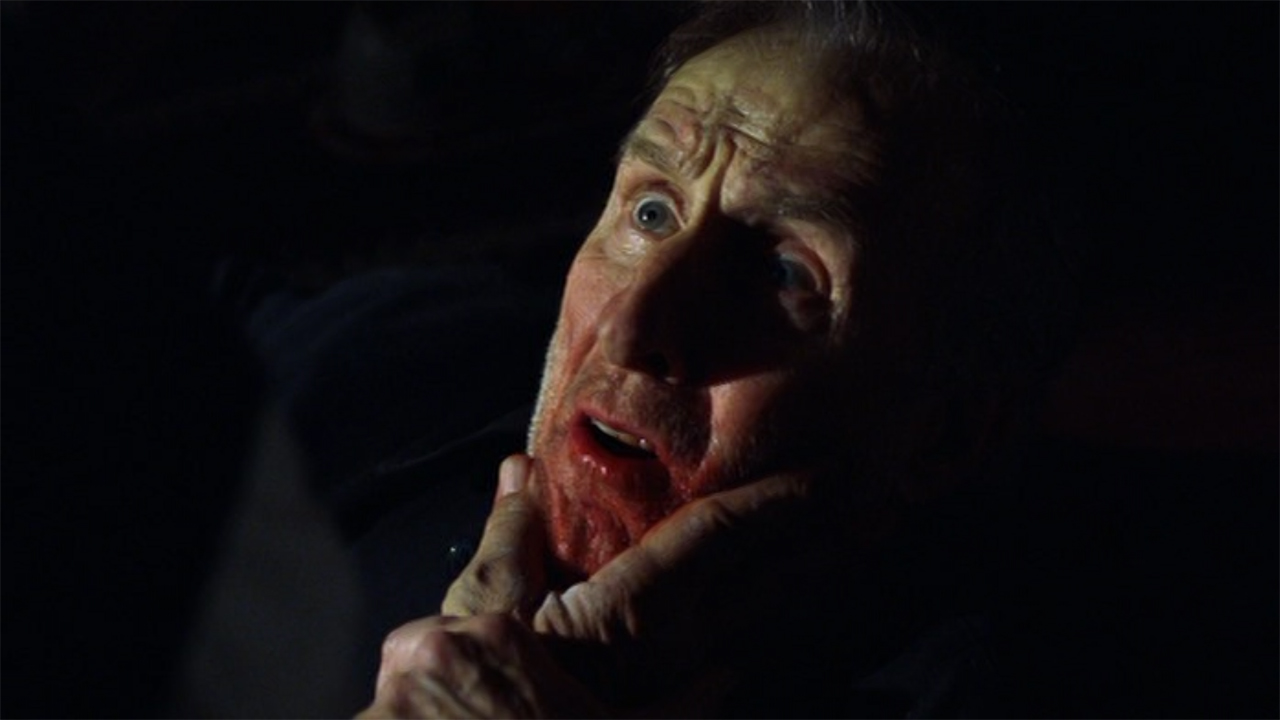
How Mikael Salomon’s Salem’s Lot Differs From The Book
As noted, Mikael Salomon’s Salem’s Lot features a number of deviations from Stephen King’s book, and it makes sense to start with that Detroit hospital I mentioned. While the novel has a wraparound story that sees Ben Mears and Mark Petrie on the run in Mexico and eventually making their way back to Jerusalem’s Lot so that they can burn it to the ground, the remake switches things up. The miniseries starts with a flash-forward featuring Ben in Michigan hunting Father Callahan, the writer confronting the priest at a soup kitchen.
After a tussle sees them crash out of a third floor window, they are brought to the hospital, and it is there that Ben starts explaining his seemingly strange behavior to his nurse.
The Detroit-set bookends provide new introductions and endings to Ben Mears’ story, but there is also plenty of meat in the middle of the material for the character that is original as well. For example, his history with the Marsten House is rewritten so that he actually witnesses the deaths of criminal monsters Hubie Marsten and his wife instead of simply seeing Hubie’s ghost hanging from the rafters (which is what’s in the novel). Additionally, he has pervasive guilt throughout the series because he believes that he let the final victim of the Marstens’ die because he was paralyzed with fear, but this is ultimately proved to be a false conception.
It’s also eventually revealed as a minor twist that Ben has returned to Jerusalem’s Lot not to write a book about the pervasiveness of evil in the Marsten House, but instead about the underlying darkness in small town life, which is a metatextual reference to the same effort being made by the miniseries itself.
As for the changes made with Dr. Cody that I alluded to earlier, there is an original subplot that sees him sleep with the mother of a patient and then get blackmailed for it – which is meant to feed into that narrative of underlying darkness in small town life. Also seemingly part of the effort is making Matt Burke a gay character and having him express sexual urges towards Mike Ryerson (Christopher Morris), but it really just comes across as a tad homophobic.
While there are other notable changes, such as Mark Petrie being portrayed as a semi-rebellious teen instead of a young horror geek, and Susan (Samantha Mathis) approaching and having vague history with Ben Mears, the last one I’ll highlight is perhaps the greatest invention in the remake miniseries, which is the death of Floyd Tibbets (Todd MacDonald).
Like in Stephen King’s novel, Floyd is on the way to becoming a vampire when he attacks Ben Mears – having heard about his relationship with Susan – but then both are thrown in prison, and there is a legitimately freaky new sequence that plays out with Floyd jamming his body through a narrow ventilation system so that he can get to Ben in the neighboring cell. He is found dead the morning after this effort fails, having chewed his wrists open in a desperate attempt to drink his own blood.
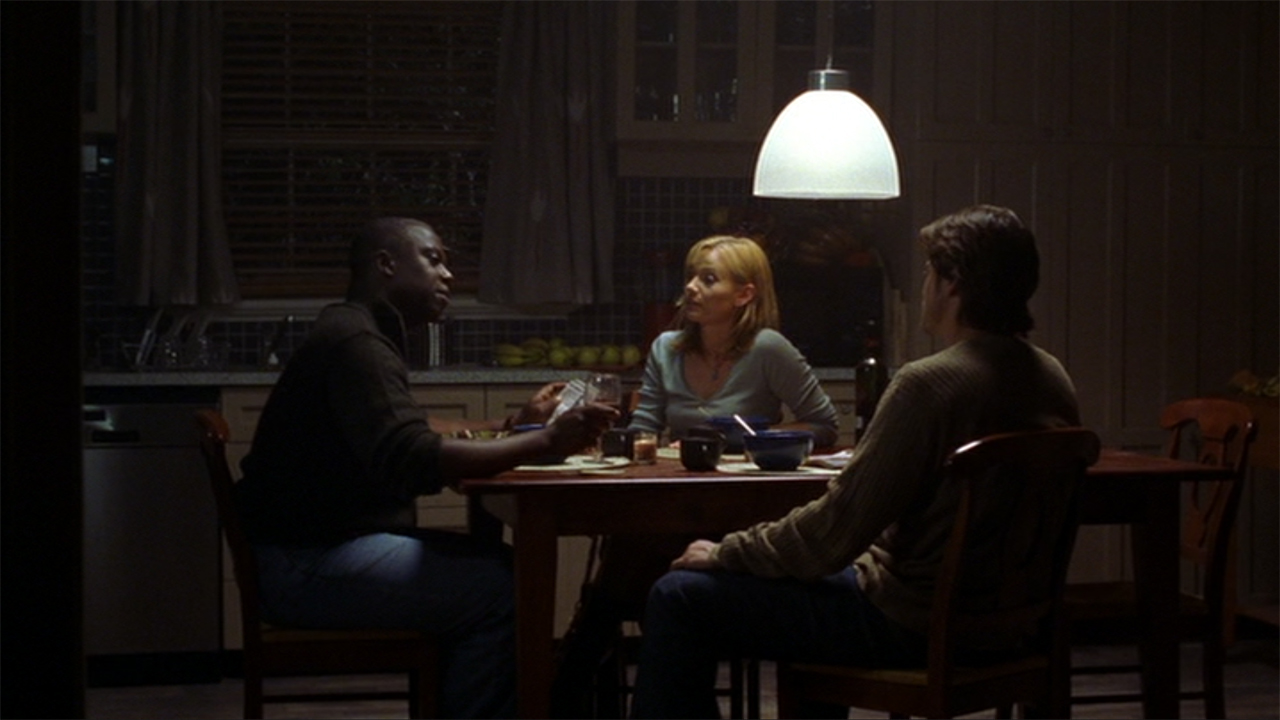
Is It Worthy Of The King?
When you consider that nobody thinks of the 2004 remake when one mentions “the Salem’s Lot miniseries,” I think it’s fair to say that this is an underrated Stephen King adaptation. I am definitely not a fan of every change that it makes, but it is able to successfully make some big swings that ultimately don’t have the effect of moving too far away from the source material. It’s not as stylistic as Tobe Hooper’s take, but it’s arguably a better-rounded take on the book.
Its biggest flaw is arguably that it pushes the gas pedal on the darkness a bit too hard. Unveiling rot in small town life is a theme that is present in a lot of Stephen King’s books, but that’s easier subject matter to digest when you’re connected and invested in a story’s protagonists. That’s a bit of a challenge here.
While his book counterpart is a curious and genial person, Rob Lowe’s Ben Mears is made out to be an author who will unflinchingly sell out the people close to him in the aim of writing the book he’s working on. And while you love the innocent and monster-obsessed Mark Petrie in King’s novel, he’s made to be off-putting as an angst-y adolescent as played by Dan Byrd. The characterizations are over-swings that feel like they were in part of the project’s desire to take advantage of the basic cable release platform and lack of strict censorship, and the choices don’t totally work.
The legacy of the 2004 Salem’s Lot remake may very well change in just a few months, as later this year audiences will get to see a brand new adaptation of Stephen King’s beloved book, with writer/director Gary Dauberman finally bringing the text to the big screen. That project’s forthcoming arrival will hopefully spur interest in the TV versions of the past, and thus help enhance the production’s status in pop culture and in the King canon.
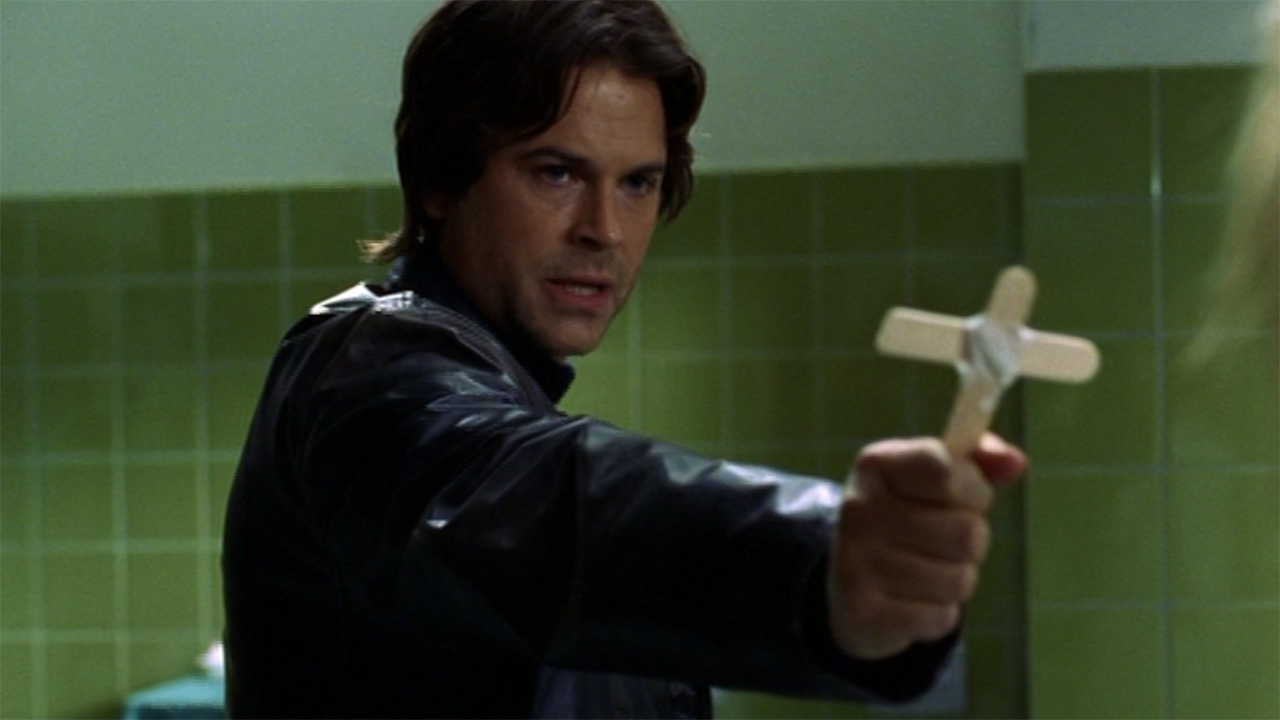
How To Watch Mikael Salomon’s Salem’s Lot
While Mikael Salomon’s Salem’s Lot isn’t presently available on any of the major subscription streaming services, it is available to be watched digitally, as you can rent or purchase an HD copy on Amazon Prime Video. That actually may be your best viewing option, even if you’re a physical media collector (like myself) trying to build the ultimate Stephen King collection. While we can keep our fingers crossed that one of the boutique Blu-ray distributors like Scream Factory, Arrow Video, or Olive Films someday gets the rights to the miniseries, as of right now the only existing home video release is a DVD.
For next week’s column, the work of Mick Garris while once again be under the microscope, as I’ll be doing a deep dive into the writer/director’s fifth Stephen King adaptation: the theatrically released 2004 feature film Riding The Bullet. Look for the feature here on CinemaBlend in our Movie section next Wednesday, and in the meantime you can explore all of my previous columns by clicking through the banners below.







Eric Eisenberg is the Assistant Managing Editor at CinemaBlend. After graduating Boston University and earning a bachelor’s degree in journalism, he took a part-time job as a staff writer for CinemaBlend, and after six months was offered the opportunity to move to Los Angeles and take on a newly created West Coast Editor position. Over a decade later, he's continuing to advance his interests and expertise. In addition to conducting filmmaker interviews and contributing to the news and feature content of the site, Eric also oversees the Movie Reviews section, writes the the weekend box office report (published Sundays), and is the site's resident Stephen King expert. He has two King-related columns.
